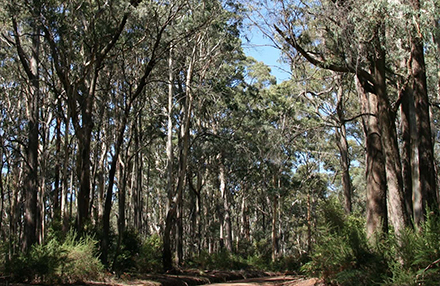
Logging of native trees will be phased out in Victoria by 2030. Source: Timberbiz
The State Government in Victoria revealed its plans today for the current level of native timber available for logging to be reduced from 2024-25.
It has been reported a financial assistance package for the industry will be substantial and reach well into the hundreds of millions of dollars.
It includes setting aside funding to establish 50,000ha of new plantations in a bid to offset the loss.
The plan also includes the release of the Greater Glider Action Statement, which makes another 96,000 hectares of forest across Victoria immediately exempt from logging in order to protect this iconic marsupial and other threatened species.
To assist businesses as they prepare for this transition, the Labor Government will provide dedicated funding to help local mills invest in new equipment that will allow them to process alternative timbers and support local jobs.
Fifth generation Gippsland forestry contractor Brett Robin says he is “bloody disappointed” about the Victorian Government’s plan to end native logging by the end of the next decade.
“We should be promoting and building the timber industry – not shutting it down,” Mr Robin told ABC radio.
“Nothing is high value to our stupid state government, listening to half a dozen greenies in Melbourne.”
Federal Agriculture Minister Bridget McKenzie accused the state government of “casting aside an entire industry and workforce” putting as many as 4700 jobs at risk.
The Victorian Association of Forestry Industries estimates more than 21,000 people work in forestry and the wood products sector and other studies have shown the native timber sector employs around 2000 people.
And an angry National Party has declared that the State Government has effectively declared country Victoria “is closed for business’’.
“Daniel Andrews is ring barking the entire industry,” the State Member for Eastern Victoria Melina Bath said. “He is quite content to make his decision on the back of ideology and not on facts.”
She said 94 per cent of the State’s forests were locked away and could not be touched which was a good thing.
“Of that remaining 6 per cent just a decimal point is harvested.’’
She believed 2030 had been chosen because of existing contracts with Australian Paper.
It is understood that VicForests will continue to meet all its existing contractual agreements as well as new agreements being struck to see out the next decade.
Australian Paper has a legislated contract for native timber supply from the state’s Central Highlands under a deal passed by the Victorian parliament in the 1990s.
It runs the Maryvale Mill, which has 850 workers and is one of the largest employers in the Latrobe Valley.
However the government expects AP to move away from native timber to plantation supplies.
“There will be three more elections between 2030 and we will be fighting to win power to have this decision overturned,” Ms Bath said.
Ms Bath conceded that however, in the meantime investment in the industry would decrease and damage would be done.
“This will destroy towns like Orbost and Hayfield,’’ she said.
“And there are 20,000 jobs downstream which will be hit right to the edge of Melbourne.’’
Ms Bath said the effects would go all the way down to the corner shop.
Senator McKenzie said native forestry was a sustainable industry, with the average harvest area over the past five years just 0.04 per of the total publicly-owned native forest in the state, while contributing almost $300 million a year to the economy.
“It’s a clean, green, sustainable, well-managed resource,” Senator McKenzie said.
“I grew up in a logging town, and I understand the industry is underpinned by a triple bottom line framework. The lack of support and commitment to this sustainable industry is strongly condemned.
“The decision today shows that the Victorian government doesn’t care about these families in regional towns, 4700 people will be out of work and this will have serious flow on effects for the state’s regional economy.”
Reduced supply will put a strain on thousands of jobs and put pressure on already struggling mills.
“Regional and rural communities underpinned by forest industries will be feeling betrayed and angry today,” Australian Forest Products Association chief executive Ross Hampton said in a statement.
“But so too will the many thousands of other Victorians working in any area which the Andrews Government may decide is expendable because of a minority of activist voices which are raised against it.”
The VAFI said the shutdown would have a devastating impact on many VAFI members and thousands of hard-working Victorians who work across the industry.
“Victoria has a long and proud native timber history and it is integral to many rural and regional communities that depend on it,” the association said.
Green groups have been lobbying the state for years for an end to native logging, pushing for the creation of a ‘Great Forest National Park’ in the Central Highlands, near Healesville.
Conservationists have argued that tourism would boost the economy.
They argue there is a major tourism opportunity that could create thousands of jobs, but the forestry sector warns that ending forestry will destroy the livelihoods of thousands in the regions.





